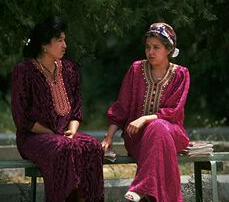 Who would have thought a few years ago that we’d live in an age when you could just pull information out of the air? I stop and think about it and am amazed that we do this, and that we take it for granted. The entertainment at our office Christmas party Friday night was either compromised or enriched – depends on your point of view – when several participants sought answers to a party game by using various electronic devices. Yesterday I sat in my office and had a long talk with my sister while she was walking home through the streets of
Who would have thought a few years ago that we’d live in an age when you could just pull information out of the air? I stop and think about it and am amazed that we do this, and that we take it for granted. The entertainment at our office Christmas party Friday night was either compromised or enriched – depends on your point of view – when several participants sought answers to a party game by using various electronic devices. Yesterday I sat in my office and had a long talk with my sister while she was walking home through the streets of When I went to
Do you suppose it’s still true, what we used to say, that half of the world’s people have never made a telephone call? (If you’ve read my blog entry on telephones, you know I sometimes wish I were one of them). Others adopt modern technologies but limit their use to reinforcing very traditional ways of life.
Every time I take a group of people overseas I notice their reactions to what seem to be, to us, leapfrogging technologies: people who have mud floors, but satellite television; no potable water but great mobile phone coverage. We send home prayer letters with descriptions of late model trucks sharing the road with donkey carts, both playing their part to bring in the harvest. Maybe we’re technologically ethnocentric, expecting that our ‘material progress’ is normal and someone else’s path a deviation.
My family of course has always lived with a foot in both worlds: Dad boasted of living off the land, the freezer and pantry well stocked with the fruit of garden and orchard. He could heat the whole house with his wood stove. But in the summer when we didn’t use that wood stove you might find his oscilloscope sitting on top of it. He loved his $900 calculator and built the first computer network for the
I’m very interested in how technology changes – or reflects – older values in a culture. Have to do some writing about that this afternoon as we revise training sessions for a January ethnography training. So consider this a warm-up.
Fun, interesting stuff, but I might rather stay far away from my cubicle on a Sunday afternoon and get outside some more before the snow we’re expecting, the same kind of snow that might fall on the simple cement house in Eastern Turkmenistan this time of year. Picture a young wife peeling potatoes and looking forward to the day, after she produces a son, when she can speak directly to her in laws rather than respectfully closing and even covering her lips when they approach (which you can see would do much to preserve the peace in the household, for all its injustice).
I wish I could send her an email.




